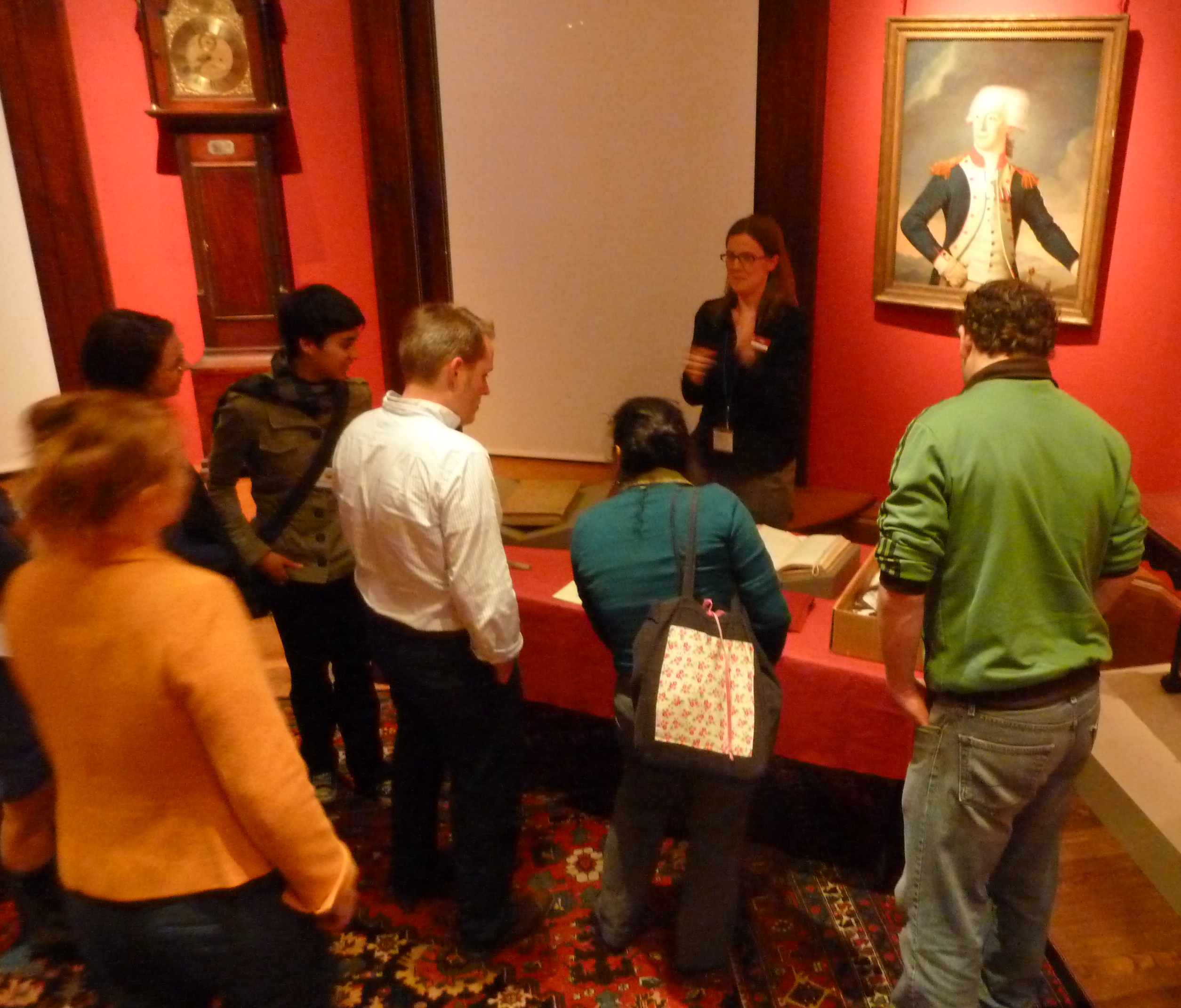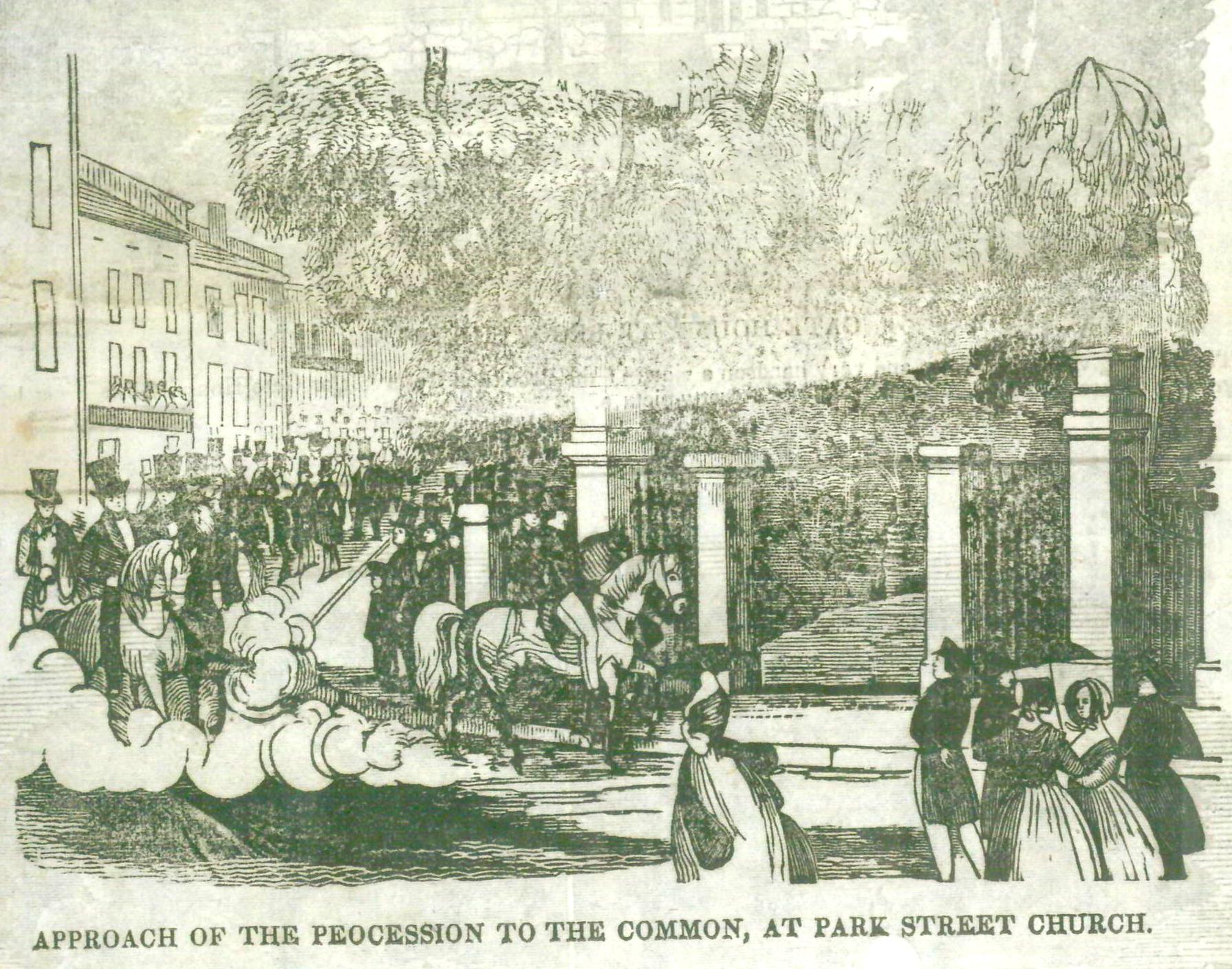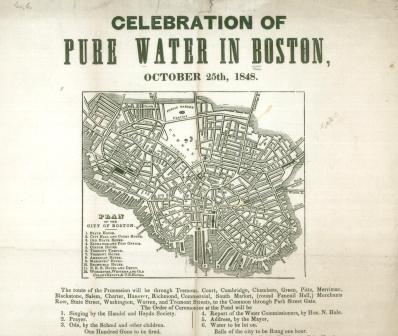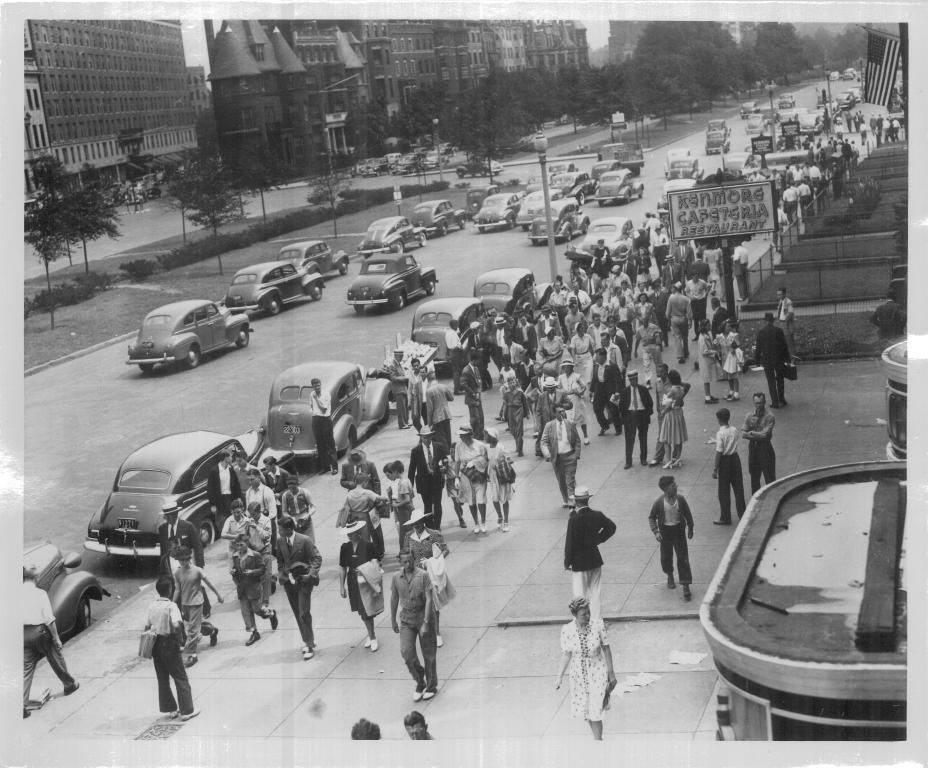By Elaine Grublin
It is a busy week at the MHS, offering a bit of something for everyone. There are assorted daytime, evening, and off-site programs, including an outdoor walking tour.
Tuesday, 1 November at 5:15 PM the Boston Early American History Seminar continues with Todd Estes, Oakland University, presenting his research The Constitution Goes Public: Strategy and Timing in the Ratification Debate, Early Fall 1787. Pauline Maier, Massachusetts Institute of Technology, will give the comment. This event will take place at McMullen Museum at Boston College, where participants will have the opportunity to view the “Making History” exhibit following the program.
Wednesday, 2 November, at 12:00 PM visitors can participate as NEH-MHS long-term fellow Joshua Greenberg, Bridgewater State University, presents aspects of his current project Face to Face Value: American Interactions with Paper Money in the Early 19th Century at a brown-bag lunch program.
Also on Wednesday, at 6:00 PM, Vincent Carretta, University of Maryland, will discuss his latest publication, Phillis Wheatley: Biography of a Genius in Bondage. Copies of the book will be available for purchase and signing after the lecture.
Thursday, 3 November, 5:30 PM a new seminar series begins at the MHS. The New England Biography Seminar will open with Michael Burlingame, Dean Grodzins, and Tony Horwitz presenting Sowing and Reaping: Biography and the Civil War: Theodore Parker, John Brown, Abraham Lincoln. Author Carol Bundy will moderate the session, which will address the rewards and challenges of looking at the American Civil War from a biographical perspective.
Sunday, 6 November, from 2:00 PM – 4:00 PM the MHS will team up with Barbara Berenson, Supreme Judicial Court of Massachusetts and author of Walking Tours of Civil War Boston, for a guided walking tour in the city. Civil War on the Freedom Trail requires pre-registration. Registered participants will receive directions to the tour’s starting place in advance and a copy of the guide book when they arrive. The cost for participating in this programs is $10 for MHS members; $15 for non-members.
Do not forget the MHS has two exhibitions open. The exhibition halls are free and open to the public Monday through Saturday, 10:00 AM to 4:00 PM. Currently on view are “Like a Wolf for the Prey”: The Massachusetts Historical Society Collection Begins and The Purchase by Blood: Massachusetts in the Civil War, 1861-1862. On Friday, 4 November at 2:00 PM, join MHS art curator Anne Bentley as she presents a gallery talk in The Purchase by Blood exhibition space.


 On Wednesday, 19 October, the Massachusetts Historical Society opened its doors to current and potential
On Wednesday, 19 October, the Massachusetts Historical Society opened its doors to current and potential 
 For those unable to attend, a number of these items were highlighted in Boston Magazine in 2009 and
For those unable to attend, a number of these items were highlighted in Boston Magazine in 2009 and  While a modern day parade that hails our sports teams as champions draws thousands of loyal fans to the streets, none will celebrate an event that had such an impact on the city or attract such a diverse crowd. While some put their hopes and emotion into supporting the Bruins or the Red Sox and cheer their victories, this was a cause to celebrate lives saved and enriched.
While a modern day parade that hails our sports teams as champions draws thousands of loyal fans to the streets, none will celebrate an event that had such an impact on the city or attract such a diverse crowd. While some put their hopes and emotion into supporting the Bruins or the Red Sox and cheer their victories, this was a cause to celebrate lives saved and enriched. The procession ended at Boston Common, at which point the performances began. There was singing by the Handel & Haydn Society, a prayer by a reverend minister, an ode sung by schoolchildren and penned by James Russell Lowell. A report on behalf of the Water Commission followed, along with an address by the Mayor. Finally, the water was turned on and the chorus from the Oratorio of Elijah was proclaimed.
The procession ended at Boston Common, at which point the performances began. There was singing by the Handel & Haydn Society, a prayer by a reverend minister, an ode sung by schoolchildren and penned by James Russell Lowell. A report on behalf of the Water Commission followed, along with an address by the Mayor. Finally, the water was turned on and the chorus from the Oratorio of Elijah was proclaimed.
